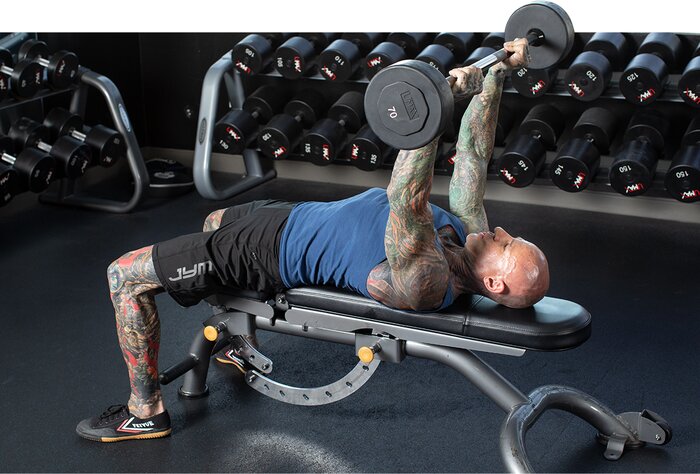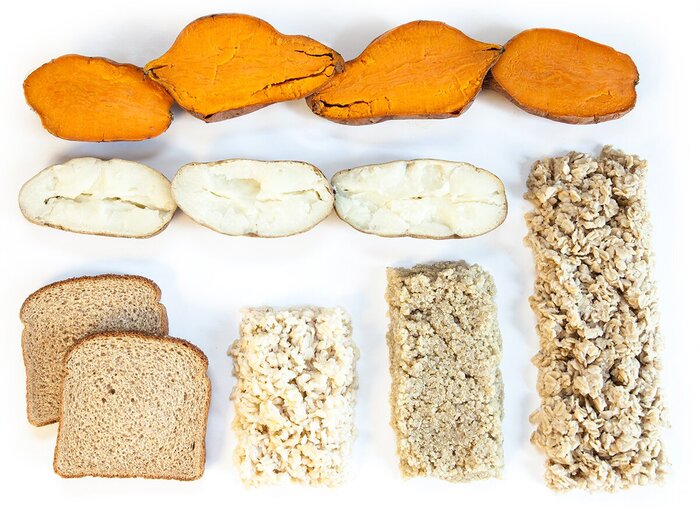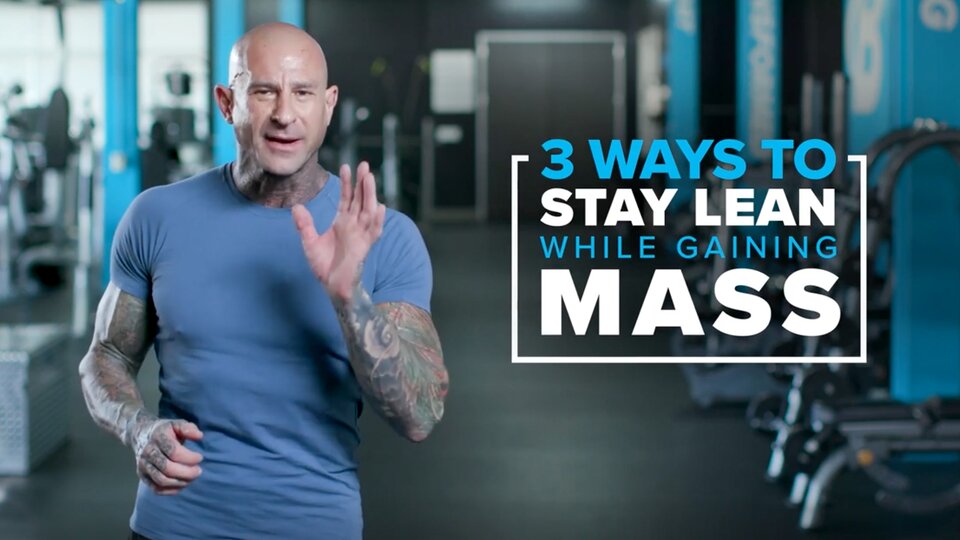Products You May Like
It’s easy to think that when it comes to adding muscle, you might as well eat anything you want because you’re going to gain body fat no matter what. Hey, that’s why they call it “bulking,” right? The more fat you’re adding, the more muscle must be coming along with it.
Jim Stoppani, Ph.D., the creator of Shortcut to Size, Shortcut to Shred, and JYM Supplement science, disagrees. “Research now shows that’s no longer the case,” he says. “The leaner you are, the higher your muscle protein synthesis. This means your body is better able to build muscle when you are lean, and it also means the fatter you are, the less anabolic you are.”
The only downside? You’ll need to be slightly more strategic in your approach than you would be if your only plan was “hit a body part a day and hit the buffet as often as possible.” Fortunately, Stoppani has your strategy outlined in his three favorite techniques to get lean—and stay lean—while building muscle.
1. Perform Full-Body Training
“Most mass-building programs follow a traditional split-type of training system where you only training one or two muscle groups per workout,” explains Stoppani.
While this means you can lift more volume per muscle group in each workout, the downside of split-style training is reduced training frequency for each muscle group.

As Stoppani mentioned in his video and article, “4 Reasons You Should be Doing Full-Body Training,” the main advantage of full-body training is each muscle group gets trained more frequently, which in turn influences gene activity to keep metabolic processes—such as fat loss and protein synthesis—revved up at a higher level. The overall effect is both greater fat loss and greater muscle gain.
How do you incorporate full-body training? Stoppani has shared enough examples of his favorite total-body training approaches on Bodybuilding.com to keep you busy for months.
Here are a few to mix and match:
2. Cycle Your Carbs
Carbs are your body’s preferred fuel source, so it makes sense that you’d want to eat more carbs if you’re training harder and trying to build muscle. The only problem with this approach is the extra carbs your body doesn’t use can get stored as body fat. This is why the “eat everything and lift heavy” mass-gaining approach often leads to an increase in body fat.
Stoppani’s approach is simple: Match your carb intake with your training, scheduling high and low days.
“With your training, you want to have those higher carb days on training days,” says Stoppani. “On your off days, you lower your carbs. That way you’re not gaining body fat while still maximizing your gains.”
Not sure where to start with your macros at all? Our macronutrient calculator can help you dial in your baseline carb intake before you dial it in day by day.

3. Eat Enough Protein
Stoppani’s third and final tip to stay lean while maximizing muscle mass is to boost your protein intake—perhaps significantly.
“Research shows that higher protein diets are not only beneficial for maximizing muscle gains, they also are helpful for maximizing fat loss,” he explains. “This is due to protein synthesis, a process which burns calories while building muscle.”
Stoppani recommends 1.5 grams of protein per pound of body weight when the goal is to stay lean while building muscle. This is a solid benchmark to aim for if you’re training hard and have struggled to put on muscle in the past. If that number is so much higher than your normal intake that you find it too expensive or difficult to hit on a daily basis, aim for 1 gram per pound (around 2 g per kg), a science-backed benchmark among strength athletes that researcher Krissy Kendall, Ph.D., recommends in the article, “How Much Protein Should You Consume Every Day?” Once you’ve got that level dialed in, you can nudge it higher as needed.
If you liked these muscle-building and fat-loss tips, you’ll love Jim Stoppani’s complete BodyFit programs, Shortcut to Size and Shortcut to Shred. You can also check out more tips like these, as well as articles on training, nutrition, and supplementation, at jimstoppani.com.
